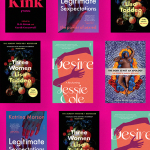
Over the last few years, various university studies across the UK, US and Australia have suggested that Generation Z are having less sex than Millennials and Boomers were in their younger years. We’ve been labelled “Puriteens” (suggesting a prudish, puritan teenager) as headlines increasingly describe us as “sex negative” or suffering a “sex recession” of our own making. Is Gen Z actually sex-negative, or do our changing attitudes to sex signal a different kind of progression? Maybe even a… sexual revolution?
Is Gen Z sex negative?
‘Sex negative’ means exactly what you’d think – negative beliefs, attitudes and behaviours towards sex. Sex negative people are not inclined to have sex, and subscribe to traditional ideas about sex – as opposed to sex positivity, which encourages us to see consensual sex as a natural, healthy and important part of the human experience.
The current research frames Gen Z as sex negative, mostly because we are having less sex. In 2019, Australia Talks found that 40% of Gen Zs said they ‘never’ have sex; 13% said they have sex once or less than once per year; and 37% said they have sex once a month or more. These stats contrast wildly with the current sex habits of older Millennials, with 67% of respondents over 30 saying they have sex once a month or more.
It’s a finding replicated in other studies too. According to a study in the U.S., people aged between 18 and 23 are having 14% less casual sex than people who were in the same age bracket 10 years ago.
There is a lot to unpack within these findings, but before we do it’s important to understand two weaknesses of this type of research. First, as the youngest members of Gen Z are only 11 years old right now it’s going to be a while until we have complete, longitudinal data about the sex attitudes of the generation. On top of that, it’s unclear how well these kinds of studies accommodate the evolving definition of ‘sex’, especially for a generation as diverse as Gen Z. Sexologist Lauren Muratore explains that “sex can look however an individual wants it to look.” Researchers and young people may not be in total alignment about what they considered to be “sex” – for example, cybersex and non-partnered sex. “One thing with Gen Z is that they don’t only accept heteronormative penis and vagina sex. So are they having less sex? Well, if it’s penis in vagina, possibly, but what else does sex look like?” Muratore says. Something to keep in mind while we unpack what exactly is going on.
it is so incredibly boring to consider sex as the only viable route to connection. and most of the time, it's not even true.
— joel miller apologist (@NicoleFroio) February 13, 2023
Why is Gen Z having less sex?
Being branded ‘sex negative’ is one thing, but when you look at the reasons why young people are having sex less often it all starts to make a lot of sense.
Mental Health: Muratore thinks this is one of the biggest contributors to Gen Z not having sex. Research indicates that Gen Zs are currently the most stressed demographic; a 2022 study found 90% of American Gen Zs experienced psychological or physical symptoms of stress. It also found that people under 25 are twice as likely to experience depression and feelings of hopelessness than people over 25.
Is it that much of a surprise? Heightened mental health issues are caused by the weight of the world around us — surviving a pandemic, the climate crisis, the cost of living crisis, technology ruling our lives, the fear of our rights being stripped away. A clear example of how stressors in the external world turn young people off from having sex is the overturning of Roe v Wade. In Lovehoney’s post-Roe v Wade survey, 40% of Gen Z adults in the U.S. said they are less likely to hook-up, 15% are less likely to engage in sexual intercourse, and 68% of women reported being worried that this will negatively affect their ability to have pleasurable sex. “If mental health is on a decline, I think the propensity to want to have sex would also naturally decline,” Muratore shared. How can we feel like having sex, when we don’t even feel like getting out of bed?
The Economy: As if the cost of living crisis hasn’t ruined our lives enough (cabbage instead of lettuce just does not hit the same), psychologist Anushka Phal pointed to the economy as a possible reason we’re having less sex. Because everything from rent to food costs more, Gen Zs tend to reach life milestones later than earlier generations – living at home with their parents for longer and delaying relationships. Unfortunately in this economy we are also less likely than previous generations of adolescents to get a paying job or a driver’s licence, translating to less time spent without parental supervision. From a practical standpoint, the logistics of dating and sex are nearly impossible without a car, paycheck or personal privacy.
The Media: According to Muratore, media also has a lot to answer for: “It has always trickled into the sheets of every generation, for good and for bad.” In spite of the abundance of sex on our screens – from Euphoria to Bridgerton, Normal People to Sex Education – the sometimes brutally honest depiction of what sex looks like could be deterring young adults from having sex altogether. For Millenials, the kiss-and-cut-to-rumpled-sheets for their favourite TV couple gave no instruction when it came to actually having sex. Perhaps leaving some mystery and romanticisation was more encouraging for young adults to seek out their own Ross-and-Rachel moment?
On the other hand, today’s entertainment media is a bit more honest and inclusive – we are finally seeing more representation of queer relationships, promotion of safe sex, some modelling of consent, and the realities of awkward teen sex when compared to movies and TV of the past. It reflects, rather than dictates, what younger generations want to see as a result of the more open discussions of sex we’re having in the 21st Century.
Progressing the sex conversation
With all that in mind, let’s revisit this idea of sex positivity vs negativity. The concept of sex positivity first emerged in the 1960s with the free love movement, progressing to sexual liberation and second-wave feminism throughout the 1970s. From then onwards we have seen a slow acceptance of casual sex and having more open conversations about sex. Sex positivity helped shift society out of the good-bad binary, which dictated a lot of the discourse around sex (and still does).
By the time Millennials reached young adulthood, sex positivity had evolved into the celebration of hookup culture – embracing casual sex as a form of liberation, particularly for women (think the later years of Sex and the City, and the original version of the Call Her Daddy podcast). The emergence and rapid rise of OnlyFans also saw many women looking to turn their sexualisation into financial gain, it’s own form of freedom and liberation.
But this capitalistic version of sexual empowerment is where things start to fall apart for Gen Zs, who watch their older peers very closely. Instead of the actually liberating women, it left a lot of young women thinking sex is something they are required to do. Casual sex and relentless sex positivity became an expectation, rather than an active choice. While Only Fans has been pivotal for normalising sex work (an important win), in showing that sex can be transactional to a woman’s benefit, it reinforces the idea of sex being a transaction. Do you need to be having sex in order to be of value to yourself or to anyone else?
To push back against that idea, Gen Z is taking conversations about sex away from ‘liberation’ into new territory focused on consent and pleasure. “Gen Z understands that, actually, I need to be feeling okay to have sex. Sex isn’t just something that is done to me, it’s something that I engage in and we do together,” Phal says. As arguably the most politically-informed generation, Gen Z has also become more intentional with their sexual experiences too: “They are not gonna rush into something that has a label on it, that comes with expectations. They need to explore how they feel about you in different aspects of their life, not just as a person you have sex with.”
The next wave of sexual progress
You could argue that raising their expectations for sexual relationships is ultimately causing Gen Z to be less sex positive than previous generations. ‘Quality over quantity’ is great in theory when it comes to most things, but is it realistic when it comes to sex? It is almost inevitable that someone’s first sexual encounter with a partner will be awkward, even if it’s only through lack of experience. There is no perfect sex act or perfect partner – waiting for those things only increases the pressure and can create unhealthy expectations around sex.
But maybe we can look at this another way. Maybe the very concept of sex positivity has evolved? “Sex positivity is the freedom to do what or whatever it is you want to be doing as long as it’s healthy and consensual and safe,” Muratore explains. Phal agrees: “I think when we were growing up there was this myth that sex positivity equals having more sex, you know? Whereas now, sex positivity is more around the mindset.”
The foundation of this new era of sex-positivity is based on education. It requires people to have access to information about their bodies, their pleasure, their health, and their choices, as well as the what societal influences shaping it all. Gen Z is much less tolerant than previous generations of unwanted behaviour, or of putting ourselves in situations in which we don’t feel comfortable. The kids are not actually ‘sex negative’ – in fact, these new attitudes are the natural progression for the sex positivity movement. Having less sex in favour of having more intentional sex is absolutely a good thing.
As society changes, so too will concepts like sex positivity grow and evolve. Muratore encourages us to lean into where this next phase of sexual evolution will take us: “Throw out gender expectations, throw out performances, throw out the feeling of not enough or what we should or have to be doing. Now we can stay embodied and sex can be a pleasurable experience if we choose it to be.”




Comments are closed.